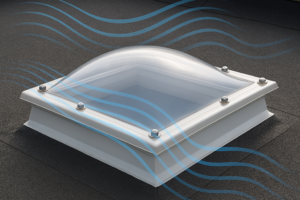The Smart Readiness Indicator (SRI) is an assessment scheme to measure a building’s ability to adapt to occupant needs, improve energy efficiency, and interact with energy grids.
The SRI evaluates how well buildings integrate smart technologies to optimise performance and contribute to energy savings, comfort, and sustainability.
The new Energy Performance of Buildings Directive 2024/1275 aims to further enhance the SRI framework by reinforcing methodologies and technical standards, established in two key legal acts – Commission Delegated Regulation (EU) 2020/2155 and Commission Implementing Regulation (EU) 2020/2156 – which define the SRI calculation methodology.
Framework of the SRI Assessment
The SRI methodology follows a multi-criteria assessment framework, structured around three key components:
1. Main Characteristics
The SRI evaluates the smart readiness of buildings based on their ability to:
- Optimise energy efficiency and reduce carbon footprint.
- Enhance comfort, well-being, and convenience for occupants.
- Improve interaction with energy grids and storage systems.
2. Technical Domains

The SRI assessment covers nine technical domains, each representing a different aspect of building functionality:
- Heating.
- Cooling.
- Domestic Hot Water.
- Controlled Ventilation.
- Lighting.
- Dynamic Building Envelope.
- Electricity.
- Electric Vehicle Charging.
- Monitoring & Control.
3. Impact Criteria

Smart-ready services within each domain are assessed against seven impact criteria, reflecting their benefits for energy efficiency, occupant experience, and grid flexibility:
- Energy Savings on Site.
- Flexibility for the Grid and Storage.
- Comfort.
- Convenience.
- Well-being and Health.
- Maintenance and Fault Prediction.
- Information to Occupants.
Next steps
By 30 June 2026, the Commission shall submit a report to the European Parliament and the Council on the testing and implementation of the smart readiness indicator on the basis of the available results of the on-going SRI national test phases and other relevant projects.
Taking into account the outcome of that report, the Commission shall, by 30 June 2027, adopt a delegated act supplementing the EPBD2024 by requiring the application of the common Union scheme for rating the smart readiness of buildings to non-residential buildings.
Eurolux is a member of the SRI platform, and supports stakeholders actions to provide viewpoints on the SRI, including its methodology, and advice to policy makers.




